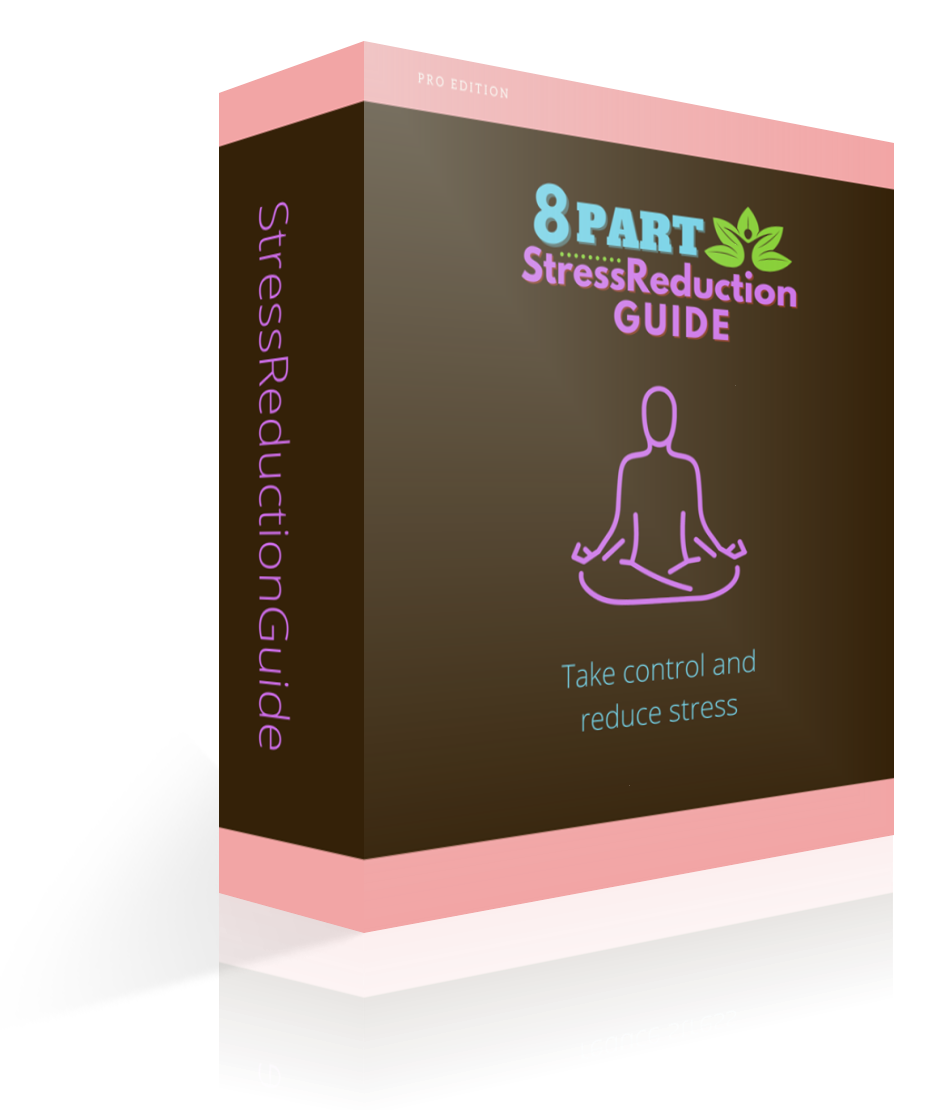Have you ever found yourself struggling to offer the same kindness and compassion to yourself that you so freely give to others? This can be a common experience and one that is often overlooked in our busy, everyday lives. Let’s delve into the essence of self-love and the significance of being mindful in cultivating it.
![]()
The Heart of Self-Love
Self-love isn’t about narcissism or vanity. It’s about acknowledging your worth and treating yourself with the same kindness, concern, and understanding that you extend to others. The journey to self-love can often feel winding and uphill, but the rewards at the end are profound and life-changing.
What is Self-Love?
Self-love is a deep appreciation for oneself that grows from actions that support our physical, psychological, and spiritual growth. Self-love means having a high regard for your own well-being and happiness. It means taking care of your own needs and not sacrificing your well-being to please others. It’s about being kind and compassionate to yourself when you stumble and fail, recognizing that imperfection is part of the shared human experience.
Common Myths Surrounding Self-Love
Many misconceptions surround the idea of self-love. Understanding and debunking these myths can change the way you perceive and pursue it.
| Myth | Reality |
|---|---|
| Self-love is selfish. | Self-love allows you to give to others without depleting yourself. |
| Self-love means you think you are better than others. | True self-love involves humility and understanding your own worth equally to others. |
| Self-love is about indulging in whatever makes you feel good. | Self-love involves making healthy and sometimes difficult choices that support your growth and well-being. |
Why is Self-Love Important?
When you love yourself, you naturally feel fulfilled and accept yourself for who you are. This acceptance radiates outwards, impacting your self-esteem, how you engage with the world, and even how you treat others.
The Mindful Path to Self-Love
Mindfulness is about being present in the moment without judgment. It is an essential tool in the practice of self-love, helping you to tune into your body, your emotions, and your inner dialogue.
What is Mindfulness?
Mindfulness is the practice of bringing your attention fully into the present moment, with openness and without judgment. It involves paying attention to your thoughts, feelings, and sensations in a way that is rooted in acceptance.
Benefits of Mindfulness in Self-Love
Engaging in mindful practices can have transformative effects on your capacity for self-love:
- Increased Awareness: Mindfulness helps you to become aware of negative self-talk and allows you to challenge these thoughts.
- Enhanced Self-Acceptance: When you practice mindfulness, you learn to accept yourself as you are without needing to change.
- Improved Emotional Regulation: Mindfulness helps in managing difficult emotions calmly and rationally.
- Connection to Inner Peace: Regular mindfulness practice can foster a sense of inner peace and contentment, contributing to a deeper sense of self-love.
Practical Mindfulness Exercises for Self-Love
Creating a routine that incorporates mindfulness techniques can help you cultivate self-love. Here are some exercises that you can easily integrate into your daily life:
Mindful Breathing
Mindful breathing is a simple yet powerful practice. It involves paying attention to your breath as it flows in and out of your body.
- Sit or lie down in a comfortable position.
- Close your eyes and take a deep breath in through your nose, hold it for a few seconds, and then breathe out gently through your mouth.
- Focus on the sensation of the breath entering and leaving your body.
- If your mind wanders, gently bring it back to the breath without judgment.
Loving-Kindness Meditation
This meditation focuses on developing feelings of goodwill, kindness, and warmth towards yourself and others.
- Find a quiet and comfortable place to sit.
- Close your eyes and take a few deep breaths.
- Repeat silently or softly to yourself: “May I be happy. May I be healthy. May I be safe. May I live with ease.”
- Gradually expand this mantra to include close friends, family members, strangers, and even those with whom you have conflict.
Body Scan Meditation
This practice helps you tune into your body and notice any areas of tension or discomfort.
- Lie down or sit comfortably.
- Close your eyes and take a few deep breaths.
- Slowly bring your attention to your feet, noticing any sensations without trying to change anything.
- Gradually move up your body, paying attention to each area (legs, hips, back, chest, arms, neck, and head).
- Spend a few moments attending to each part of your body.
Self-Compassion Techniques
Practicing self-compassion is an integral part of fostering self-love. Self-compassion involves being kind, understanding, and nurturing toward yourself, especially in times of suffering or failure.
Self-Compassionate Talk
The way you talk to yourself can significantly affect your self-love. Often, self-talk is critical and harsh, especially during failures or mistakes. Learn to talk to yourself with the same kindness you would offer to a friend.
- Acknowledge your pain: “This is a difficult moment. It is okay to feel upset.”
- Be kind to yourself: “I am human, and everyone makes mistakes. This doesn’t define my worth.”
- Offer support: “What can I do right now to comfort myself?”
Writing a Self-Compassionate Letter
Writing a letter to yourself can be a powerful way to cultivate self-compassion.
- Think about a situation that caused you pain or stress.
- Write a letter to yourself, acknowledging your feelings and offering words of kindness, support, and understanding.
- Re-read the letter whenever you need reassurance or a boost of self-compassion.
Creating a Self-Compassion Plan
Developing a plan to consistently practice self-compassion can keep you grounded and focused on your self-love journey.
| Self-Compassion Plan |
|---|
| Morning Routine: Start your day with a few minutes of meditation or positive affirmations. |
| Trigger Awareness: Identify situations that trigger negative self-talk. When encountered, take a deep breath and practice self-compassionate talk. |
| Daily Journaling: Dedicate a few minutes each day to jot down moments when you practiced self-compassion and how it made you feel. |
| Regular Breaks: Schedule short breaks throughout your day to check in with yourself, acknowledge your feelings, and offer kindness. |
| Evening Reflection: End your day by reflecting on your self-compassion practice and setting intentions for the next day. |

The Role of Boundaries in Self-Love
Healthy boundaries are essential to protect your well-being and maintain your self-love. Learning to set boundaries is an act of self-respect and demonstrates that you value your time and energy.
Why Boundaries Matter
Boundaries are crucial for several reasons:
- Protects Your Energy: Limits over-commitment and conserves energy.
- Maintains Balance: Helps to balance your personal, professional, and social life.
- Enhances Self-Respect: Shows that you value and respect yourself enough to set limits.
- Promotes Healthy Relationships: Encourages mutual respect and understanding in relationships.
Types of Boundaries
Being clear on different types of boundaries can help you implement them effectively.
| Type of Boundary | Description |
|---|---|
| Physical Boundaries | Personal space and physical touch preferences. |
| Emotional Boundaries | Distinguishing your feelings from others and recognizing emotional limits. |
| Time Boundaries | Allocating your time to match your priorities. |
| Mental Boundaries | Ensuring your thoughts and opinions are respected. |
| Material Boundaries | Guidelines around your personal belongings and resources. |
How to Set Boundaries
Setting boundaries involves being clear and direct about your needs and limits.
- Identify Your Needs: Reflect on what you need to feel respected and safe.
- Communicate Clearly: Be direct and honest in expressing your boundaries.
- Stay Consistent: Consistently enforce your boundaries to maintain them.
- Practice Self-Awareness: Regularly check in with yourself to ensure your boundaries are being respected and adjust them if necessary.
Overcoming Obstacles in Cultivating Self-Love
The journey to self-love is not without its challenges. Understanding and navigating these obstacles with empathy and patience is a significant part of the process.
Common Challenges
- Self-Doubt: Feeling unworthy of self-love.
- Criticism and Judgment: Harsh self-criticism and judgment.
- Comparison: Comparing oneself to others.
- Perfectionism: Striving for unattainable perfection.
Strategies to Overcome Challenges
- Practice Self-Compassion: Accept your flaws and mistakes with kindness.
- Avoid Comparison: Focus on your journey and progress instead of comparing with others.
- Shift Perspective: Reframe negative thoughts to positive and realistic ones.
- Surround Yourself with Positivity: Engage with people and environments that uplift and support you.

Creating a Support System
Having a support system is invaluable on the path to self-love. Surround yourself with individuals who encourage your growth, respect your boundaries, and share positive energy.
Building Your Support Network
- Family and Friends: Seek support from loved ones who understand and respect your self-love journey.
- Support Groups: Join groups or communities with shared goals and experiences.
- Professional Help: Consider working with a coach or therapist specializing in self-love and mindfulness.
Engaging in Supportive Relationships
Healthy relationships are fundamental to maintaining self-love.
- Communicate Openly: Express your needs, boundaries, and feelings with clarity.
- Practice Reciprocity: Ensure that your relationships have a balance of giving and receiving.
- Cultivate Respect: Engage in relationships where mutual respect is at the core.
Nourishing Mind, Body, and Soul
Self-love encompasses taking care of your entire being – mind, body, and soul. Cultivating holistic health practices can significantly enhance your self-love journey.
Mind
- Mindfulness Exercises: Regularly practice mindfulness and meditation.
- Continuous Learning: Engage in activities that stimulate and challenge your mind.
- Positive Affirmations: Repeat positive affirmations to reinforce self-love.
Body
- Healthy Eating: Nourish your body with balanced and nutritious foods.
- Regular Exercise: Stay active through enjoyable physical activities.
- Adequate Rest: Ensure you get enough sleep to rejuvenate your body.
Soul
- Spiritual Practices: Engage in practices that nourish your spirit, such as meditation, prayer, or spending time in nature.
- Creative Outlets: Express yourself through creative activities like painting, writing, or music.
- Gratitude Practice: Regularly reflect on things you are grateful for to foster a sense of contentment and joy.

Sustaining Your Self-Love Journey
The journey to self-love is continuous and evolving. It requires commitment, patience, and a willingness to grow and adapt.
Staying Committed
- Regular Reflection: Periodically reflect on your self-love journey and progress.
- Set Realistic Goals: Establish attainable self-love goals and celebrate your achievements.
- Be Patient: Understand that self-love is a lifelong journey with ups and downs.
Adapting to Change
- Stay Flexible: Be open to changes and adjustments in your self-love practices.
- Embrace Growth: Look at challenges and setbacks as opportunities for growth.
- Seek Inspiration: Regularly seek inspiration from books, podcasts, or individuals who embody self-love principles.
Celebrating Your Progress
- Acknowledge Achievements: Celebrate even the small milestones on your self-love journey.
- Reward Yourself: Treat yourself kindly and reward your efforts.
- Share Your Journey: Inspire others by sharing your experiences and insights on self-love.
In conclusion, embracing self-love through mindful moments is a profound and transformative journey. It’s about nurturing kindness, compassion, and understanding toward yourself, which in turn enriches your overall well-being and relationships. Remember, the path to self-love is personal and unique – cherish each step, forgive your stumbles, and celebrate your progress.




